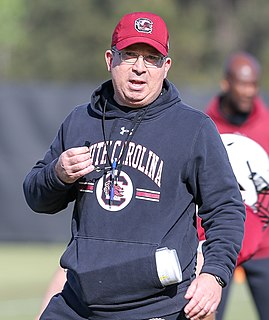A Quote by Andrew Rannells
Coming from the theater, you know what your given circumstances are every night and who your character is. You're reenacting this one moment of their lives over and over, so you get really good at figuring out how to navigate it. TV was a huge adjustment for me because the script changes every episode, and you have a different set of circumstances.
Related Quotes
"On Script" is one of my favorite songs I've ever written. I'd just been jamming on it one day, and again I was struggling with lyrics. I'm still figuring out what it's about. I've seen a couple of reviews that are like, "It's about the monotony of playing the same songs every night," because I say, "On script every night/Like a well-rehearsed stage show." It's not about that at all, but I find that funny, how people project what they think about me, or songwriters in general.
The "magic if" is a tool invented by Stanislavski, the father of acting craft, is to help an actor make appropriate choices. Essentially, the "magic if" refers to the answer to the question, "What would I do if I were this character in this situation?" Note that the question is not "What would I do if I were in this situation?" What you would do may be very different from what the character would do. Your job, based on your analysis of the script, the scene, and the given circumstances regarding the who of your character, is to decide what he or she would do.
I think film is a world of directors. Theater is a world of actors. Or, theater is for actors as cinema is for directors. I started in theater. Filming is as complete as directing film. In theater, you are there, you have a character, you have a play, you have a light, you have a set, you have an audience, and you're in control, and every night is different depending on you and the relationship with the other actors. It's as simple as that. So, you are given all the tools.
A lot of people live in fear because they haven't figured out how you're going to react when faced with a certain set of circumstances. I've come to terms with this by looking deeply into whatever makes me fearful - what are the key elements that get the hairs up on the back of my neck - and then figuring out what I can do about it.
When you read about the lives of other people, people of different circumstances or similar circumstances, you are part of their lives for that moment. You inhabit their lives, and you feel what they're feeling, and that is compassion. If we see that reading does allow us that, we see how absolutely essential reading is.
I kind of went into soap opera with 'General Hospital' in the '80s. It's like theater because every day it's a new script, which really doesn't have a beginning, middle or end like a play or a movie script. So you have to be on your toes and bring it every day. And you have to be spontaneous, which is really how I like to work.
I think your text [script] is everything; it's what informs you; it's what gives you the given circumstances. Then you take that and you add your own creativity and your own spin on things and you make it personal. That's what makes that character and that text unique to you, when you personalize it. I think that's where your job as an actor comes in.
Lesson number one: opportunity can be manufactured. Yes, you can wait around for the right set of circumstances to fall into place and then leap into action but you can also create those set of circumstances on your own. In so doing, you manufacture your own opportunities. This has helped me immeasurably.
Whatever your vocation is, you are destined to reign in life because Jesus is Lord of your life. When you reign in life, you reign over sin, you reign over the powers of darkness, and you reign over depression, over poverty, over every curse, and over every sickness and disease. You REIGN over the devil and all his devices!




































